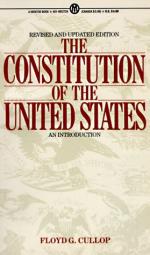
|
| Name: _________________________ | Period: ___________________ |
This test consists of 15 multiple choice questions and 5 short answer questions.
Multiple Choice Questions
1. A citizen may not be unlawfully searched nor seizure of his person or personal property made without a written court order obtained with what?
(a) Court clerk signature.
(b) Notary stamp, signature.
(c) Notary stamp.
(d) Good cause.
2. Amendment 1 contains how many freedoms?
(a) 3.
(b) 10.
(c) 12.
(d) 5.
3. Amendment 14, Section 2 (1868) states that if any state takes away the right to vote from individuals meeting which of the following requirements, the number of representatives for that state may be reduced in proportion to those persons not allowed to vote?
(a) 21 years old, U.S. residents, not convicted.
(b) 18 years old, U.S. citizens, not convicted.
(c) 21 years old, U.S. citizens, not convicted.
(d) 18 years old, U.S. residents, not convicted.
4. Which freedom is addressed in Amendment 1?
(a) No one must supply room and board to soldiers except in wartime.
(b) Citizens must only provide room, military provides food.
(c) No one must supply room and board to soldiers except in peacetime.
(d) Congress is prohibited from restricting freedom of the press.
5. Which freedom can be found in Amendment 1?
(a) Citizens are free to attend the educational institution of their choice.
(b) Congress cannot pass a law establishing a national religion.
(c) Citizens are free to marry anyone of their choosing.
(d) Citizens are free from military service except during national invasion.
6. Amendment 25, Section 2 (1967) stipulates if there is a vacancy in the office of Vice President, who fills the vacancy?
(a) Speaker of the House.
(b) President designates.
(c) President nominates, Congress confirms.
(d) Secretary of State.
7. No citizen shall be forced to supply room and board to soldiers except in the time of war, and even then it is only acceptable when what?
(a) Congress passes a law to this effect.
(b) States pass a law to this effect.
(c) Supreme Court approves.
(d) Congress has declared war by majority rule.
8. Amendment 16 (1913) changes Article 1, Section 2, and declares that the government can collect taxes, regardless of a state's what?
(a) Durable goods produced.
(b) Location.
(c) Territorial size.
(d) Population.
9. Amendment 17 (1913) stipulates that to vote for the senators from his state, a person must meet what qualifications?
(a) Age 18, U.S. citizen, citizen of state senators will serve, not convicted.
(b) Same as to vote for largest house in state legislature of residence.
(c) Same as to vote for President, Vice President.
(d) Age 21, U.S. citizen, citizen of state senators will serve, not convicted.
10. Being tried again for a crime already found not guilty of is the definition of what?
(a) Double indemnity.
(b) Double jeopardy.
(c) Indemnity.
(d) Jeopardy.
11. Amendment 1 addresses which of the following five freedoms?
(a) Congress cannot prevent or inhibit legally sanctioned elections.
(b) Congress cannot prevent appointment of Supreme Court justices.
(c) Congress cannot prevent riotous assembly.
(d) Congress cannot prevent peaceful assembly.
12. Amendment 14, Section 1 (1868) stipulates no state can make laws that do what to citizens of the U.S.?
(a) Take away, restrict any rights, privileges, protections except in war.
(b) Take away, restrict any rights, privileges, protections except in military.
(c) Take away, restrict any rights, privileges, protections.
(d) Take away, restrict any rights, privileges, protections except for juveniles.
13. "Room and board" means what?
(a) Bed and bath.
(b) Lodging and ale.
(c) Bath and shelter.
(d) Lodging and food.
14. To supply room and board means to what?
(a) Quartet.
(b) Quarter.
(c) Inquiry.
(d) Quarry.
15. The government may pass laws regarding the ownership of certain weapons in the way in which they are used is addressed in which amendment?
(a) 5.
(b) 2.
(c) 3.
(d) 4.
Short Answer Questions
1. Amendment 1 includes which freedom?
2. Amendment 13, Section 2 (1865) stipulates Congress has the power to enforce this article by what means?
3. Amendment 17 (1913) specifies the Senate is composed of how many members?
4. Amendment 15, Section 1 (1870) stipulates the right of U.S. citizens to vote cannot be taken away for which of the following reasons?
5. Amendment 20, Section 1 (1933) stipulates the terms of senators and representatives end at noon on which dates of the year such terms end respectively?
|
This section contains 687 words (approx. 3 pages at 300 words per page) |

|




